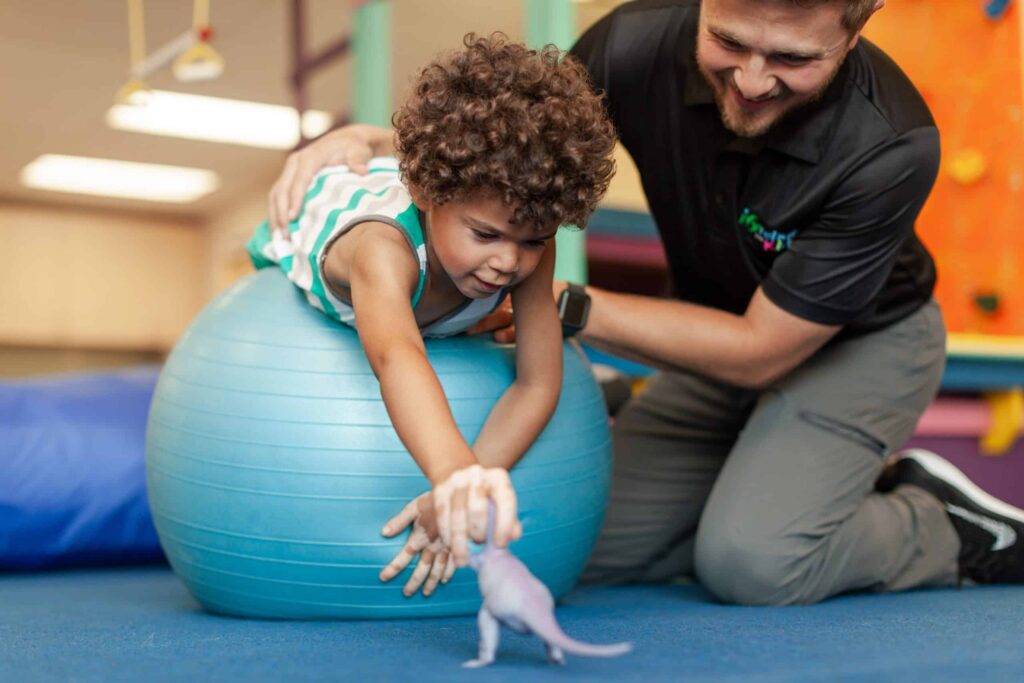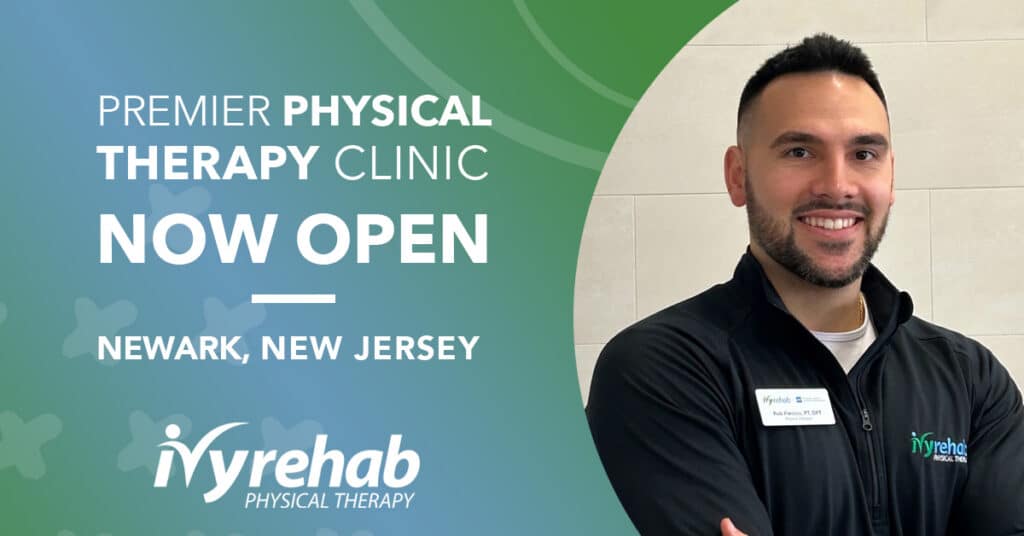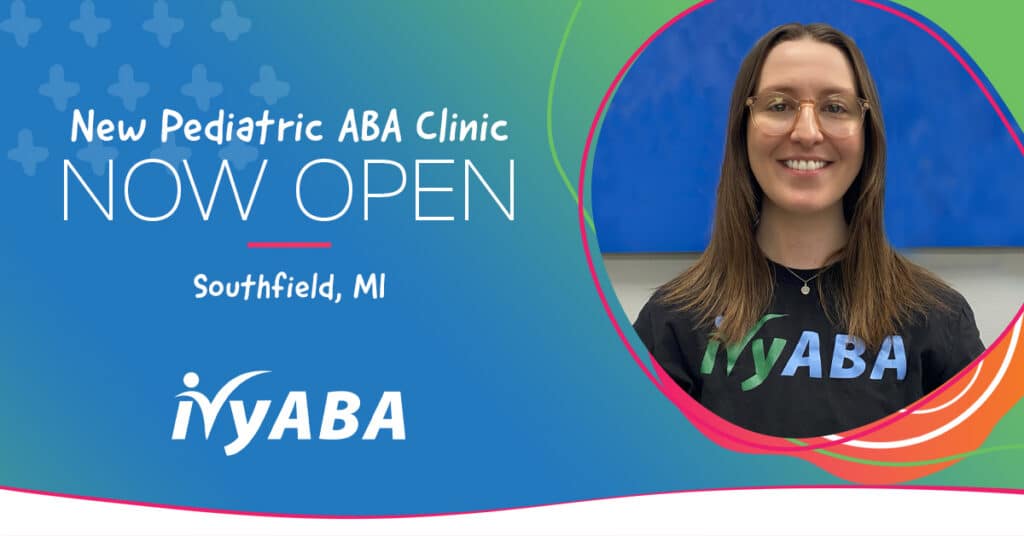Did you know your child begins to learn fine motor skills at birth? Their cute grasp of your finger and interest in reaching for objects are steppingstones for their fine motor development into early childhood.
You can start incorporating many activities into your daily life to help your child master these skills for independence and prepare for school. While every child is different and develops uniquely, any concerns should be discussed with your pediatrician to see how Occupational Therapy could assist your child. Below you will find commonly asked questions regarding fine motor skills as they apply to school readiness and emotional regulation.
Why do fine motor skills matter?
Understanding fine motor development starts with answering why are fine motor skills important. Fine motor skills involve the intrinsic muscles of the hand that control the fingers and thumb. These are the primary muscles used for:
- Feeding
- Dressing
- Handwriting
- Gripping objects
- And many more everyday tasks
If a child has weakness or poor coordination with their hand movements, performing these small-movement, fine detailed tasks can be more challenging. Additionally, it could be more difficult for your child to gain independence by buttoning their coat or tying their shoes, potentially interfering with your routine or wellbeing.
Emotions are often triggered by frustration with tasks, specifically, more challenging tasks for us. If a child experiences negative emotions with a task, they may avoid it or express frustration that leads to their emotional state becoming dysregulated. If you can set your child up for success with these fine motor skills, your daily routine may go smoother than if your child requires full assistance.
Why is fine and gross motor skill development important?
Gross motor skills are large movements that include, but are not limited to:
- Rolling
- Crawling
- Walking
- Jumping
- Skipping
- Riding a bike
Each of these skills builds on the other, and if one is skipped or not mastered, it could lead to difficulty with the following skill. Similar to fine motor skills, if a child struggles with gross motor skills due to weakness or incoordination, it could be more difficult to gain independence with these self regulation activities.
Fine and gross motor skills use multiple areas of the brain to coordinate movement. Our brains develop stronger and improve carry-over to build on more advanced skills by working on these movements and patterns. For example, crawling is the primary gross motor movement involving the left and right sides of the body, the brain, the upper and lower body, and the core. If a child does not master crawling, weakness may be seen in either side of the body’s upper or lower limbs, and their brain development is affected if their left and right sides do not get the opportunity to process a crawling pattern. This can affect their abilities with fine motor tasks as their upper body and brain are used to process and complete those tasks.
How do fine motor skills affect learning?
Fine motor skills build on each other. Around three years old, a child can hold a pencil in a writing position. At four years old, a child can draw stick figures, possibly lines or shapes, and even letters. When they reach five years old, their grip can develop into a more dynamic grip pattern (also known as a tripod grasp).
If a child struggles with their grip strength or ability to maintain a grasp on their pencil at the age of three, it could be more difficult for them to learn the following skills at age four. This concept also applies to cutting, dressing, feeding, and many other skills that follow in adolescence and adulthood.
Emotional regulation also applies to how we learn. Suppose we associate a negative experience with a challenging task. In that case, it may be more difficult to understand or practice that task, causing a delay in developing more advanced skills. By introducing age-appropriate and skills to a child, they can learn and master that skill to progress to the next one based on their age.
Why are good fine motor skills important for school readiness?
Fine motor skills are a category that covers a variety of detailed tasks, many of which are used in preschool and elementary school. Assisting your child with learning age-appropriate fine motor skills will allow them to be successful when placed in an environment where a level of independence may be beneficial to them.
Fine motor tasks for school readiness include:
- Writing their name on their assignment
- Cutting out their craft project
- Buttoning or zipping their coat for recess
- Feeding themselves their lunch
- Independence in the restroom
You can help your child achieve and skills by creating space and time for them to practice. Including functional activities in your everyday routine will allow your child to become more comfortable with each task and potentially avoid frustration with tasks they may not have experience with.
A fine motor activity you can include in your child’s play to help with these skills includes:
- Building blocks
- Drawing and coloring
- Playdough
- Crafts and paper cutting activities
- Reading books and allowing them to turn the pages or point
- Dress up
- Playing kitchen
- Puzzles and games
- Legos
Providing your child with opportunities to play is crucial for learning skills that are required during their school day. You are proving the opportunity for success with their handwriting and ability to write their name, independent reading during quiet time in class, and encouraging social skills so they can play with children their age during recess.
Ivy Rehab for Kids can help
Early intervention is key in getting your child the support they need. At Ivy Rehab for Kids, we offer pediatric Occupational Therapy, where our Occupational Therapists will listen to your needs as a parent and your child’s needs to create an individualized plan of care. Each child is unique and may require different strategies. They are experts in approaching challenging activities with children and working through any emotions they may experience during their treatment sessions.
Our therapists will also provide you with information, and resources, so you can advocate for your child and carry over the recommended strategies at home. During your child’s time receiving treatment, if a strategy is not working for you or you need additional guidance, your therapist can modify and suggest alternative strategies to be successful.
If you have any concerns regarding your child’s fine motor skill development or school readiness, don’t hesitate to contact our clinic to provide you with more information. Visit our website to request an appointment online or contact the location nearest you for additional information.
Article By: Hannah Lee, PTA
Hannah began her Physical Therapist Assistant career just over one year ago. Hannah loves working with the Pediatric population and believes in the importance of providing evidence-based, quality, direct care to her patients. She currently holds certification to provide Serial Casting at her clinic. Hannah enjoys working with children of all ages and watching them achieve their goals and educating their parents on how to be an advocate for their children. She currently treats patients at Ivy Rehab for Kids in Davison, MI.





